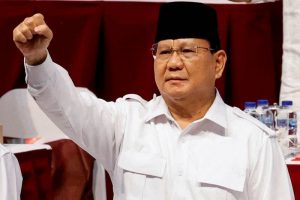Philippine President Ferdinand Marcos Jr won a modest tariff cut for exports from his country on Tuesday during his visit to Washington.
US President Donald Trump said Filipino goods would face a 19% tariff rate after what he said was a “beautiful visit” by his Philippine counterpart to the White House. He noted that US goods would now pay zero tariffs.
The new tariff rate is just below the 20% threatened by Trump earlier this month, but still above the 17% rate set in April when Trump announced what he called “reciprocal tariffs” for dozens of countries. It matches the 19% rate announced for Indonesia and bests Vietnam’s slightly higher rate of 20%.
ALSO SEE: Nikkei Jumps After Trump Strikes 15% Tariff Deal With Japan
Trump posted the news on his Truth Social media platform after meeting with Marcos in the Oval Office, where he had earlier signalled a deal could be reached during the visit.
“It was a beautiful visit, and we concluded our Trade Deal, whereby The Philippines is going OPEN MARKET with the United States, and ZERO Tariffs. The Philippines will pay a 19% Tariff,” Trump said, calling Marcos a “very good and tough negotiator.”
‘Strongest, closest, most reliable ally’
Trump said the two Pacific allies, who will celebrate 80 years of diplomatic relations next year, would also work together militarily but gave no details.
Marcos, the first Southeast Asian leader to meet Trump in his second term, told reporters at the start of the meeting that the United States was his country’s “strongest, closest, most reliable ally.”
He described his country’s trade deal with the United States as a “significant achievement.”
“One percent might seem like a very small concession. However, when you put it in real terms, it is a significant achievement,” Marcos told reporters in Washington.
Philippine Ambassador to the United States Jose Manuel Romualdez echoed the view, calling it “an evolving good deal for both countries that could be further improved over time.”
Trump said the “very big numbers” in the trade agreement would only grow larger. The US had a deficit of nearly $5 billion with the Philippines last year on bilateral goods trade of $23.5 billion, a 21.8% increase from the previous year.
The United States remains a vital export destination, accounting for nearly 16% of the Philippines’ total exports, such as semiconductors and electronic products in the first five months of the year.
Manila to get more US cars, imports
To offset the trade imbalance, Marcos said the Philippines would increase imports from the US. There were certain markets the US had requested to be opened, including the automobile sector.
“Because we have a tariff on American automobiles, we will open that market and no longer charge tariffs on that,” he said.
The Philippines was looking to increase imports of soy, wheat products and medicines, he added.
Trump has upended global trade flows with tariffs on nearly every trading partner, with almost all countries facing a 10% tariff that took effect in April and many facing steep additional tariffs from August 1.
Gregory Poling, a Southeast Asia expert at Washington’s Center for Strategic and International Studies, said it was too early to say much about the Philippines trade deal since no details had been released, as was the case with similar pacts with Indonesia and Vietnam.
“At the end of the day, I don’t think the Philippine government is sweating the final number so long as it keeps Philippine-made goods competitive with those of its neighbors, which this does,” Poling said.
- Reuters with additional editing by Jim Pollard
























